Wealthy Switzerland is a country of tenants
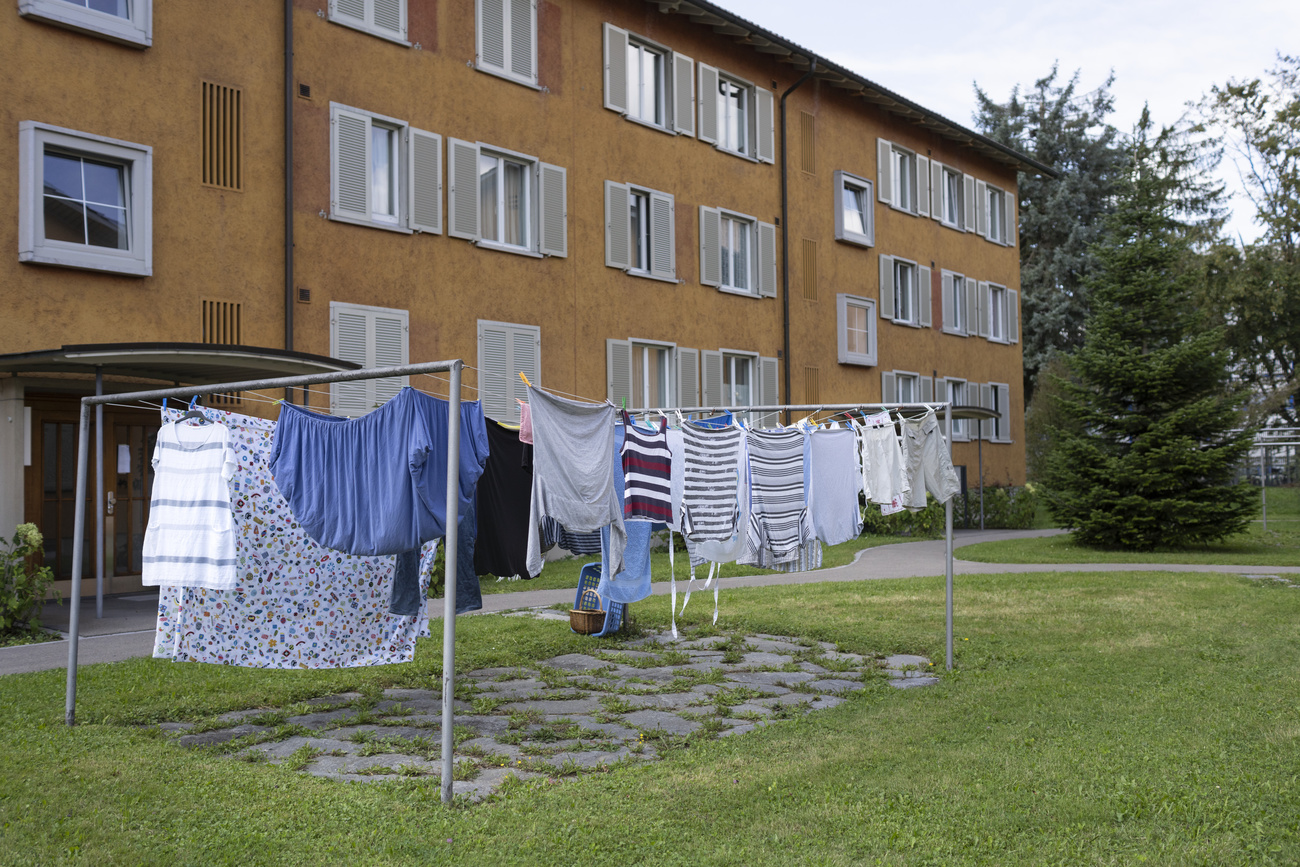
The majority of people in Switzerland live in rented accommodation. This is unique compared with other European countries. Its implications affect our everyday lives, the environment, politics, and – it goes without saying – the rights of tenants. But not always in the way we would expect.
Anyone who returns to live in Switzerland or moves to the country for the first time will most probably start renting accommodation in an apartment building. This is because Switzerland is a country of tenants. A clear majority of the resident population, 58%, rent their homes. Such a high percentage is unusual.
Homeowners account for the majority everywhere else in Europe (Germany has the thinnest majority, at just over 50%). The proportion of homeowners in Europe is routinely around two-thirds or more. This certainly makes Switzerland a special case. But although our country normally revels in exceptionalism, such a high proportion of tenants is not necessarily something of which it is proud.
On the contrary, the media normally like to moan that so few live in their own home. “The dream of home ownership is an illusion for most people in Switzerland” was the headline of a recent article about rising house prices in the free daily newspaper 20 Minuten. And the dream is not simply to own a flat, but “a house with a garden”.
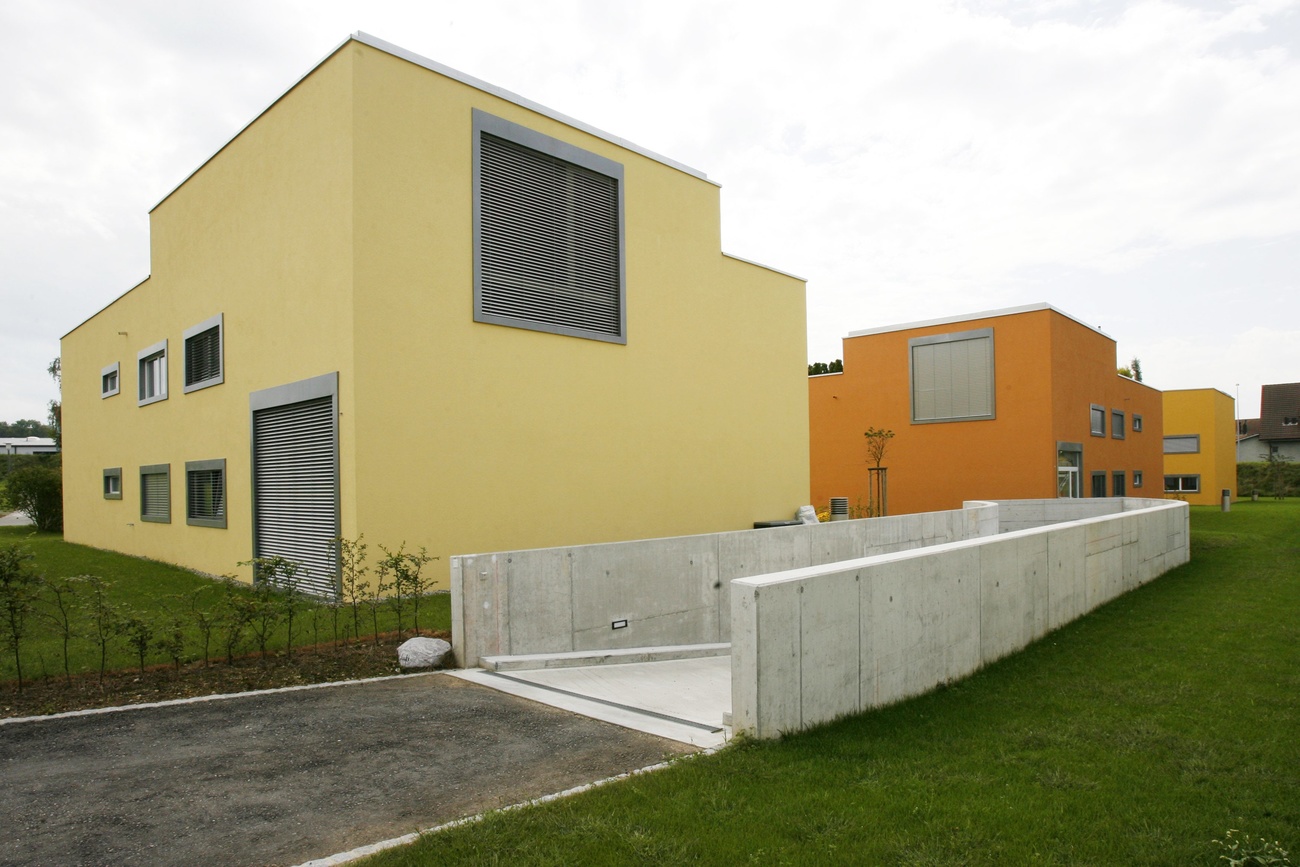
But if the majority of Swiss live in rented accommodation, mostly apartments, is this really a problem? And how does it affect our everyday lives, the economy, politics, and the environment? Based on studies and what the experts and stakeholders say, there are various aspects to consider. These are not always what we would expect. In this article, we consider nine hypotheses.
Hypothesis no. 1: A high proportion of tenants helps to combat urban sprawl
According to architect and local Green politician from Biel, Benedikt Loderer, a high proportion of tenants is not a bad thing at all. “Rental developments tend to be high density. This counteracts urban expansion,” he says. Loderer is a fierce critic of the extensive detached-housing developments often seen in Switzerland’s Central Plateau region. “If Switzerland’s entire 8.5-million population lived in detached houses, we would have no countryside left.” The dream of owning bricks and mortar on a patch of green land is an illusion anyway, he adds. “We know that most homeowners are not really homeowners at all. Their houses effectively belong to the banks issuing the mortgages.”
Hypothesis no. 2: It is harder for tenants to do their bit for the environment
The landlord alone decides how a tenant’s apartment is heated and how well it is insulated. And the problem with politicians asking tenants to turn down their radiators because of the Ukraine war and higher energy prices is that heating consumption in older apartment buildings is often not measured or calculated individually. Instead, heating costs are invoiced equally among all the tenants. If you are frugal with your heating, you end up picking up the tab for your wasteful neighbours.
Whether a higher home ownership rate would simplify Switzerland’s switch from nuclear and fossil fuels is another matter altogether. And ultimately one for referendums to decide. Homeowners tend to be against tougher rules, while tenants are more in favour.
Hypothesis no. 3: A high proportion of tenants is a sign of prosperity
You would think that people in rich countries are more likely to afford home ownership. But precisely the opposite seems to be the case. Less-well-off countries have a higher proportion of homeowners. The statistics bear this out. In Albania and Romania, the home ownership rate is the highest in Europe at over 96%. It is also very high in Portugal, Spain and Greece, at around three-quarters. What do we learn from this? That people’s own four walls are more important for financial security in countries with shakier economies.
We see a similar pattern in Switzerland, where the highest home ownership rates are 58% and 54% respectively in the rural cantons of Appenzell Inner Rhodes and Valais. In the economically strong cantons of Basel City and Geneva, homeowners only account for 15% and 18% of the population respectively. Most people rent instead, as is generally the case in Switzerland’s major cities and in prosperous cantons such as Zurich and Zug.
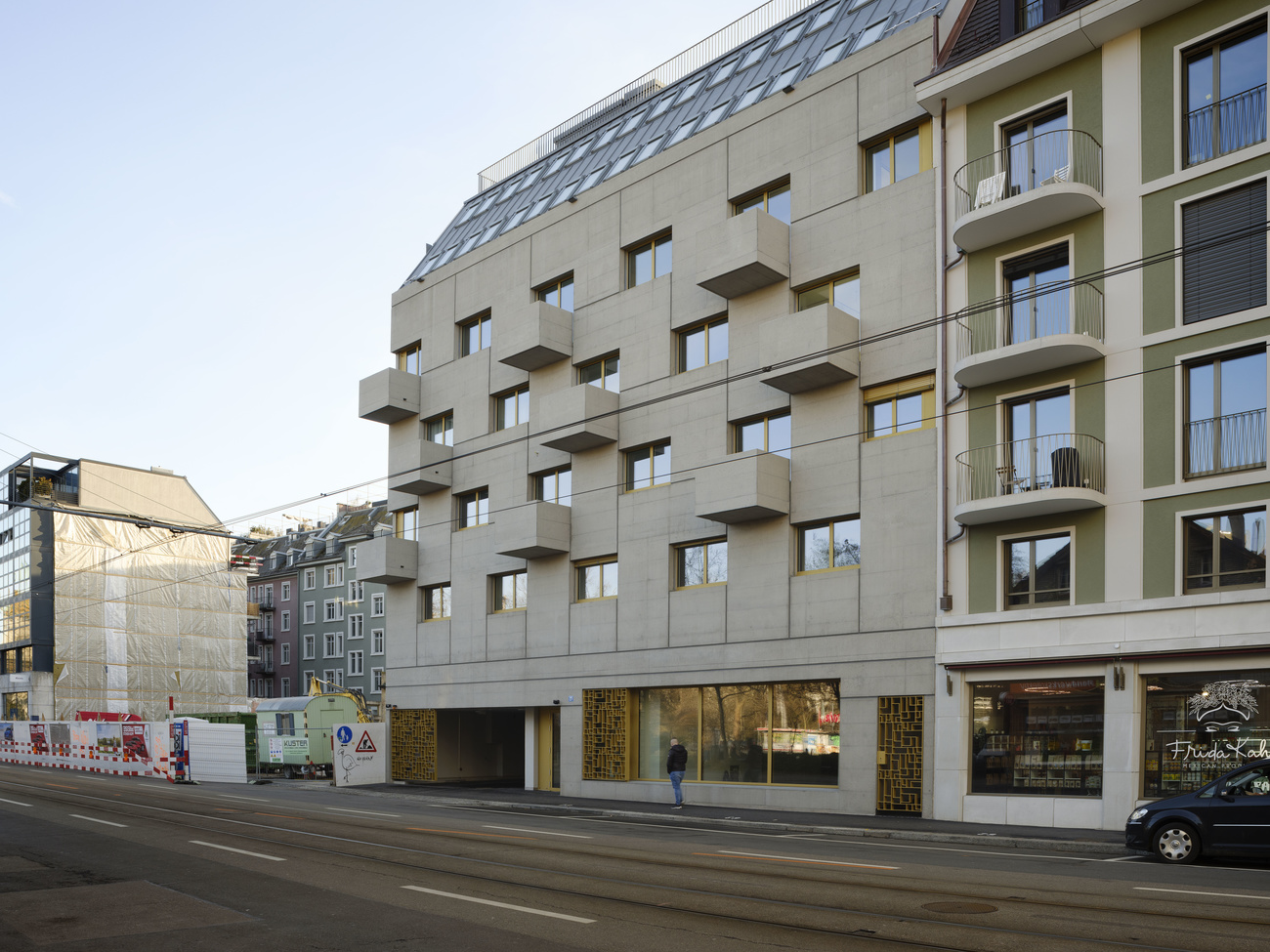
Hypothesis no. 4: Renting is a model that works – and it is often cheaper than owning your own home
Political geographer Michael Hermann has a surprising explanation for why the proportion of tenants in prosperous Switzerland is so high. “Essentially, people believe that renting is a concept that works,” he says, pointing out that collaborative and cooperative business models generally have a stronger tradition in Switzerland than in other countries. Take cooperative retail chains Migros and Coop, for example. Or the ubiquitous shared laundry room in your archetypal Swiss apartment building.
It is also cheaper to rent than buy – or at least it has become so recently, according to economists at bank Credit Suisse in a study published a short time ago. “Purchasers of an owner-occupied home have to pay more than for a comparable rental apartment,” they wrote. But only now is this the case again, because mortgage rates have rebounded. Previously, it was the other way round during the period of low interest rates that began in 2008. This reversal points to a certain degree of normality returning.
However, such studies tell us little about individual situations. Furthermore, the cost of housing – like the cost of living – tends to be very high in Switzerland compared to other countries. The price of renting also puts a huge strain on household budgets, particularly among the low-income demographic.
Hypothesis no. 5: Life as a tenant is a varied and sometimes stressful experience
There is a high level of residential mobility in Switzerland. In statistical terms, one in ten people moves home every year. It appears that it is less about changing location than a change in actual accommodation. In 2020, the average relocation distance in Switzerland was only 12.5 kilometres. However, almost three-quarters of all moves involved upsizing into bigger or downsizing into smaller accommodation.
Obviously, many people resize according to their personal circumstances. It is no surprise that people who live in apartment buildings move twice as often as those who live in detached houses.

Being a tenant can therefore be quite a varied experience. By the time you reach middle age, you can easily have lived in a dozen or more apartments. But flexible living has its drawbacks. In most cities, apartment hunting is a sport in itself. Good, affordable flats – a very rare thing – usually change hands on the quiet. Unless you have a secure income or good contacts, expect to live in the outlying suburbs or in unattractive spots such as noisy through roads.
Hypothesis no. 6: The Swiss tenants’ association must have a lot of political clout
You would think that tenants are on to a winner in Swiss referendums, given that they make up the majority of the electorate. Not necessarily! On February 9, 2020, an emphatic 57% of Swiss voters rejected the “More affordable homes” popular initiative put forward by the Swiss Tenants’ Association (MV), which wanted no less than 10% of new builds to be used for “affordable” social and cooperative housing.
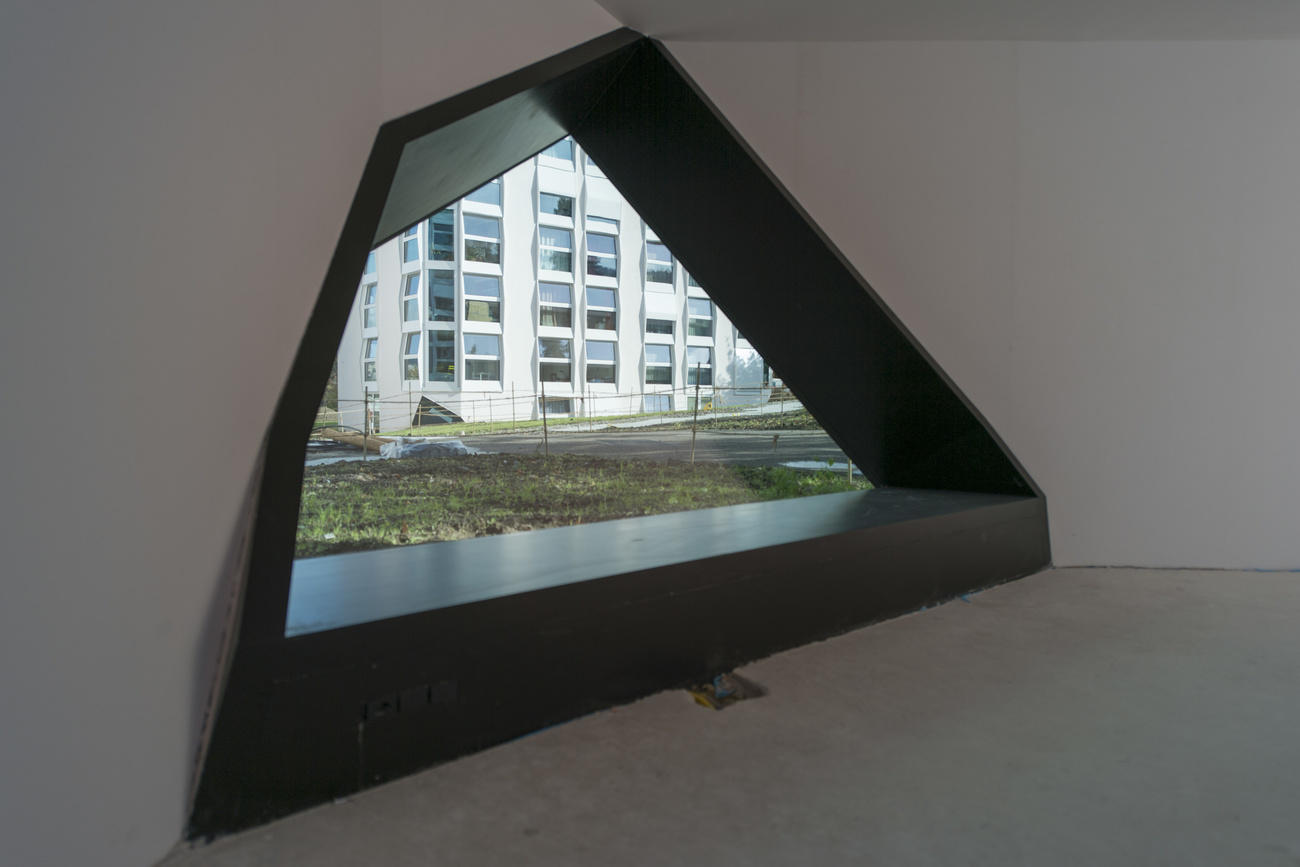
More
Voters reject ‘affordable housing’ initiative
This is not the first time that the association has stumbled at the polls. In fact, the tenants’ association has failed with all its popular initiatives to date – at least at national level. Is Switzerland a country of tenants who dream of home ownership and vote accordingly? Yes, if you ask the Swiss Homeowners’ Association (HEV), which cited a survey of people searching for accommodation. The results of the questionnaire revealed that people in middle age are particularly interested in owning property “because they finally want somewhere to settle”. The MV general secretary, Green parliamentarian Natalie Imboden, actually concedes the same point: “Tenants dream of buying because they no longer want to live with the risk of being kicked out of their accommodation one day.”
On the other hand, it would be wrong to imagine that the MV has its work cut out compared to the HEV, given that the latter has also failed with all of its popular initiatives. Nevertheless, both organisations still carry a lot of referendum clout and are very well placed to torpedo any proposals that they dislike. Basically, they are good at blocking legislation but not so good at pushing through their own ideas. It is a permanent tug of war between the two camps.
Hypothesis no. 7: Switzerland has a two-track renting system
Tenancy agreements in Switzerland tend to drill down to the minutest detail – such as stipulating the apartment heating temperature (20°C) or how much money tenants have to pay for repairs themselves (up to CHF150 ($155)). And the principle of cost-covering rent applies, i.e. rising costs can be the only justification for rent increases. But the market also has a big role to play beyond the landlord-tenant relationship, especially when it comes to new lets.
First of all, it is fair to say that the protections in place for tenants are quite good. Landlords can still terminate tenancy agreements if they wish, but legal safeguards mean that affected tenants usually have a good chance of having their stay extended – sometimes for several years. However, landlords letting new properties have considerable power. This creates a two-track system, whereby rents are much higher on the market than they are for existing leases. If you live in the same apartment for a long time, you pay less than someone would if they were starting to rent that property for the first time.
Hypothesis no. 8: The balance between landlords and tenants is fair or unfair, depending on your perspective
Landlord and tenant rights in Switzerland represent a good compromise, according to the economically liberal think tank Avenir Suisse: “Regulation of the Swiss rental housing market is quite modest, meaning that good-quality accommodation is always available to rent.” This is the main reason why Switzerland has a high proportion of tenants, it says, adding that rental properties in other countries are squeezed out of the market by excessive regulation.
Natalie Imboden of the MV disagrees: “The rental market isn’t working in urban areas, where most people live.” Tenants need more protection from landlords cashing in without doing the actual work of a landlord. Not so, says the HEV managing director and parliamentarian for the Swiss People’s Party, Markus Meier. “Our members are unable to build enough housing in urban areas, which is a bad situation for them too.” The protections that the MV wants are excessive and will only squeeze the rental market further, in his view.
Hypothesis no. 9: Tenants shy away from clashing with their landlords
There is a huge amount of money at stake in the landlord-tenant dynamic. According to an MV-commissioned study, tenants have paid CHF78 billion too much in rent over the past 15 years. By law, the cost of renting in Switzerland is linked to mortgage rates. Interest has fallen since 2008, but rents have continued to rise. This study is nothing but a red herring, the HEV retorts, because it fails to take increased running costs and investment into account. The MV begs to differ.
What is undeniable is that many tenants opt out of asking for a lower rent, despite the law working in their favour. Why? According to the MV, many are afraid of rocking the boat and clashing with their landlord. But Markus Meier of the homeowners’ association believes that the tenant/landlord relationship is not as bad as the tenants’ association makes out. He cites a federal government survey, which says that 63% of the population are “fairly happy” or “very happy” with current tenancy law.
With mortgage rates rising again, the ball is now in the court of landlords. Property owners will soon be able to increase rents on the basis of these higher rates. Will they also exercise restraint to avoid upsetting tenants?
This article was first published by Swiss ReviewExternal link.

In compliance with the JTI standards
More: SWI swissinfo.ch certified by the Journalism Trust Initiative








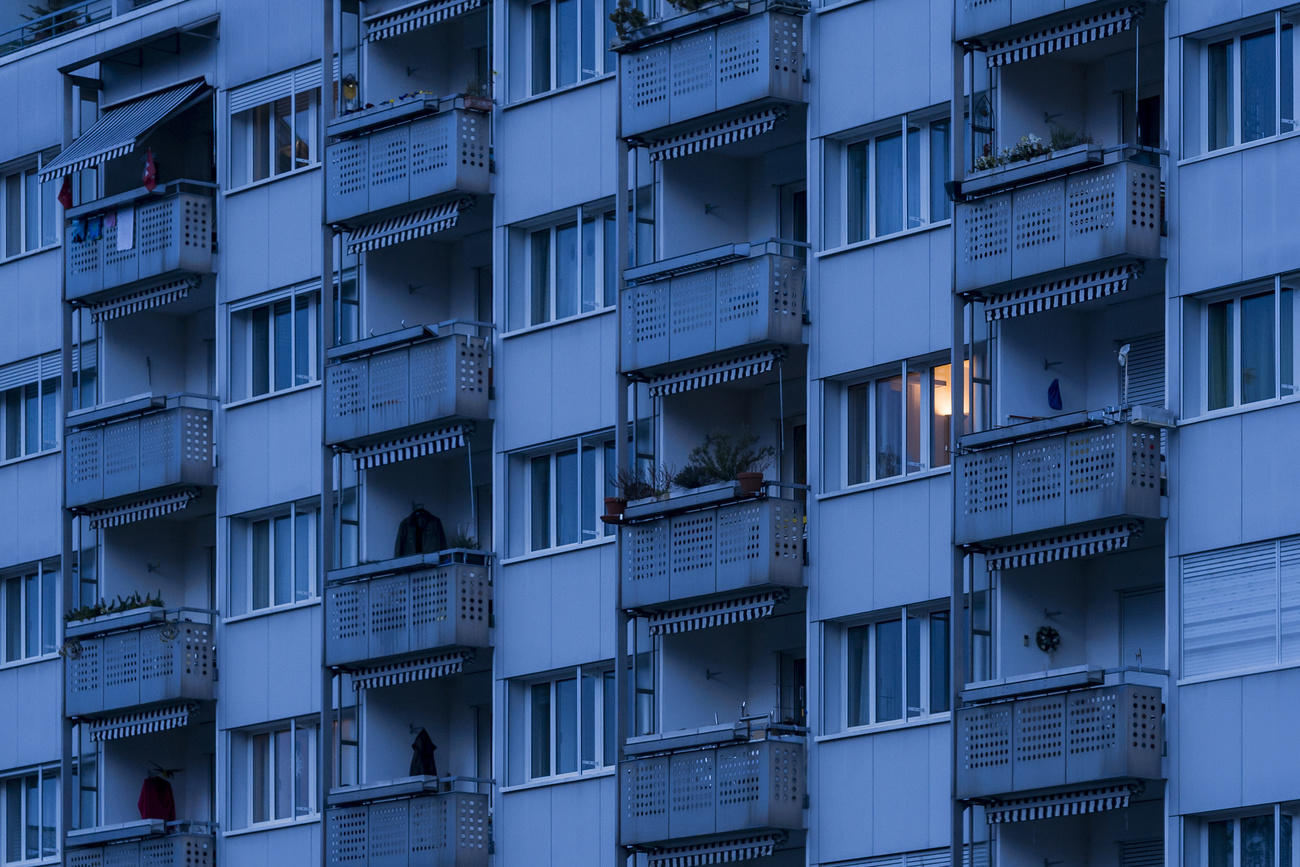
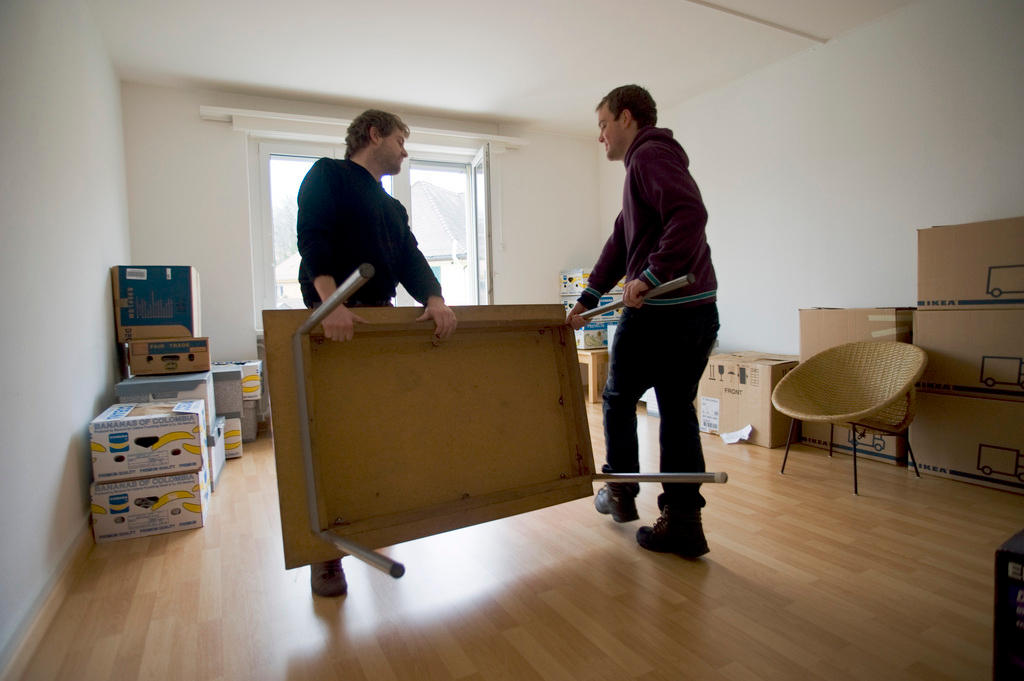
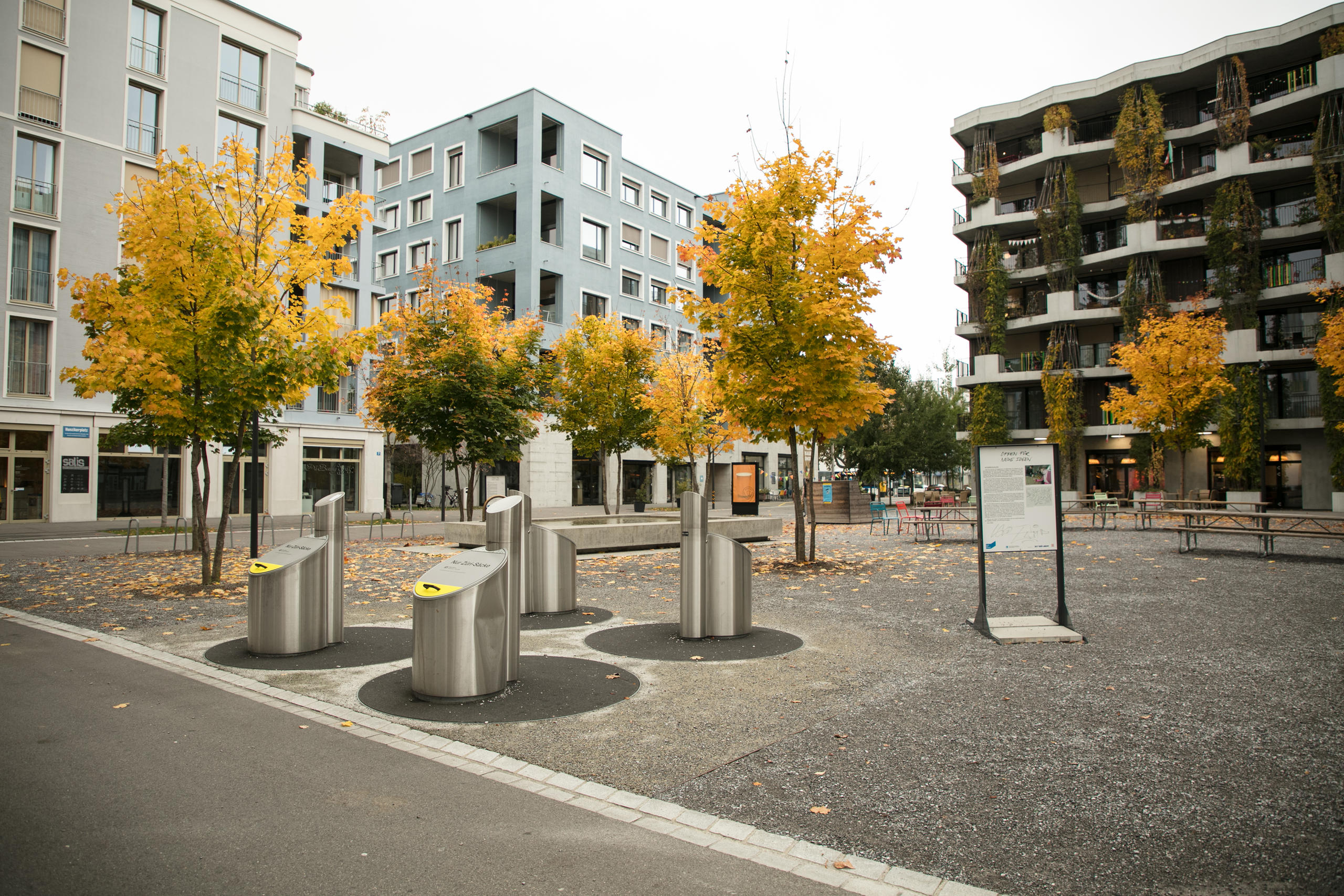
You can find an overview of ongoing debates with our journalists here . Please join us!
If you want to start a conversation about a topic raised in this article or want to report factual errors, email us at english@swissinfo.ch.